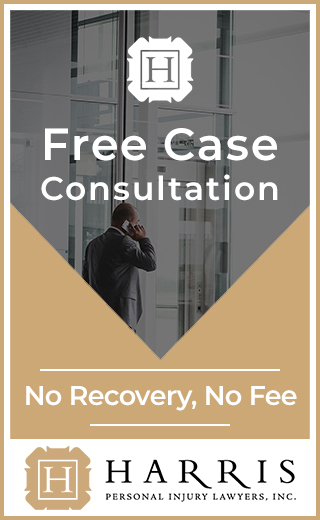Azusa Wrongful Death Attorneys
Azusa Wrongful Death Attorneys
If you’ve recently lost a loved one due to someone else’s reckless or negligent actions, it’s only normal to experience grief, stress, and anger at those responsible. While taking legal action against the liable parties won’t bring back your relative, it can help give you and your family a sense of justice and provide you with the financial safety net you need to be able to rebuild your lives. Our Azusa wrongful death attorneys can help guide you through the challenging days ahead. When you hire one of our lawyers to oversee your claim, you can rest assured we will do everything in our power to help you succeed in your case. From investigating the accident and collecting evidence to answering your questions throughout proceedings, we will provide tenacious representation from day one. To lock in a free case assessment, dial 1-800-GO-HARRIS today. We are available to take your call 24/7.
How Do I Prove a Wrongful Death Case?
While it may seem clear to you that the defendant is 100 percent responsible for causing the death of your loved one, you will still need to prove various elements before you receive a financial award. Simply put, you must show the court that the defendant was negligent, that their actions caused your relative’s death, and provide evidence of the damages you incurred as a result of their actions. Let’s look at some of these elements in closer detail:
- Duty of Care: For the defendant to be liable for negligence, they must have owed the deceased a duty of care. While the definition of this term will vary based on the circumstances surrounding your case, it is essentially a responsibility to either act with reasonable care to ensure the safety of someone else, or refrain from taking actions that would cause them harm. For instance, in a pedestrian accident case, the plaintiff would need to show that the defendant had a duty to obey the local traffic laws and to look out for anyone crossing the road.
- Breach of Duty of Care: The plaintiff must then demonstrate that the defendant breached the duty of care owed to the deceased. In the example given above, evidence might show that the motorist was texting on their phone when they struck and hit the pedestrian.
- Causation: You must demonstrate that the liable party’s breach of the duty of care owed to the deceased led to their death. This connection is known as causation. As such, even if the defendant was distracted, he or she may not be responsible for the deceased’s death if, for example, evidence shows that the pedestrian purposefully jumped in front of the defendant’s vehicle.
- Damages: Finally, you will need to prove the damages that you and your family have suffered as a direct result of your loved one’s death. It’s possible for you to prove all the elements listed above only to lose the case because you cannot demonstrate that you suffered any real harm due to the deceased’s death.
What Damages Might Be Available in a Wrongful Death Case?
Money may be the furthest thing from your mind in this dark chapter of your life. However, as the days go by, and your costs continue to add up, the financial impact of losing a loved one starts to be all too clear. If your relative’s death was caused by another party, you may be able to pursue compensation for a wide range of damages. While there’s no settlement that can ever replace your loved one, the financial recovery in a wrongful death lawsuit can provide you with some relief during these challenging times. As such, you may be wondering what your claim is worth. While we can approximate the value of your damages, we cannot guarantee a specific outcome for your case—no law firm can. Our attorneys can help investigate the circumstances surrounding your loved one’s death, gather and compile the necessary evidence to prove liability and damages, and provide compassionate representation at every stage of proceedings. Let’s take a look at some of the types of damages that may be available to you and your family:
- The Deceased’s Medical Bills: From the initial ER visit to subsequent procedures, medical expenses can pile up quickly. Whether these costs were covered by the deceased’s estate, or you and other family members paid out of your pockets, you might be able to seek compensation for such losses.
- Funeral and Burial Costs: Burying a relative isn’t just a heart-wrenching moment; it can also be an immense financial burden. From purchasing the casket to paying for the service itself, arranging a funeral will usually cost thousands of dollars. As a plaintiff, you are entitled to pursue damages for the cost of burying a loved one. Make sure to track these costs carefully by compiling any relevant receipts and invoices so that they are ready to share with your attorney during the initial consultation.
- Future Lost Earnings and Benefits: Was the deceased in their early twenties beginning a new career? Or were they set to retire soon? How much was the deceased earning prior to the accident? If you depended on the deceased financially, it’s likely their death has put you in a precarious financial position. Fortunately, you may be able to pursue damages for earnings and benefits the deceased would have provided had they survived. At HPIL, we may consult with vocational and financial experts to help outline the deceased’s expected career trajectory and approximate the value of lost wages.
Speak to a Wrongful Death Attorney in Azusa Today
If you’ve recently lost someone close to you due to someone else’s negligent or reckless actions, it might be in your best interests to speak to a wrongful death lawyer. Reach out to us at 1-800-GO-HARRIS or visit our contact page HERE to book a free case assessment.

